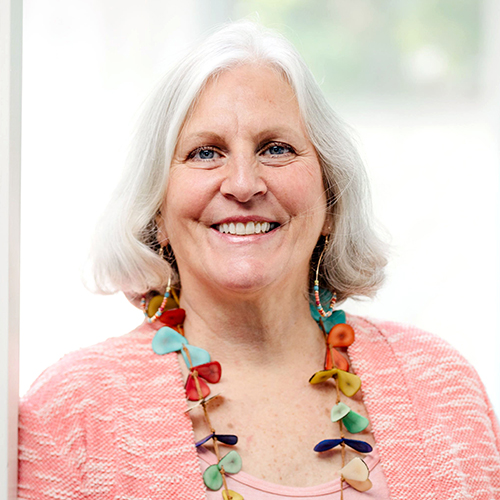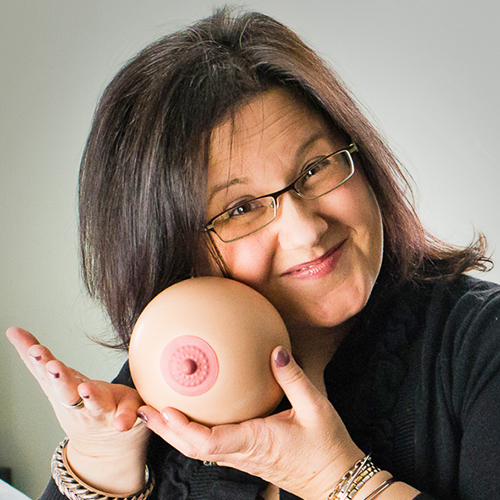 IBCLC Detailed Content Outline: Clinical Skills Focused CERPs - Section VII
IBCLC Detailed Content Outline: Clinical Skills Focused CERPs - Section VII
Access CERPs on Clinical Skills for the IBCLC Detailed Content Outline recertification requirements. Enjoy convenient on-demand viewing of the latest Clinical Skills focused IBCLC CERPs at your own pace.

Empowering Breastfeeding in Women Receiving Medication-Assisted Treatment for Opioid Use Disorder: A Call for Policy Change

Dr. Kelly McGlothen-Bell is an Assistant Professor at UT Health San Antonio, School of Nursing. As a nurse scientist, Dr. McGlothen-Bell is dedicated to understanding and resolving perinatal-infant health disparities in underrepresented groups, particularly among mother-infant dyads impacted by substance use disorders and preterm births. Dr. McGlothen-Bell uses interdisciplinary research, bio-behavioral methodologies, and community-engaged strategies to define and explore health priorities that can be remedied through culturally appropriate and sustainable health solutions. Her program of science focuses on understanding the relationship between infant feeding behaviors and readiness in high-risk infants and attunement between the primary caregiver and child during infancy and toddlerhood. The culmination of these findings contributes to the development of evidence-based interventions geared toward improving parental engagement and pediatric feeding success in marginalized populations. Dr. McGlothen-Bell has published numerous peer-reviewed articles related to developmental strategies for high-risk infants. She has also presented her work at conferences nationally and internationally. Dr. McGlothen-Bell has received numerous awards to include the 2019 National Association of Neonatal Nurses (NANN) Mentee/Mentor Grant Award. She was also selected as a 2019-2020 Academy Jonas Nurse Policy Scholar.
Topic: Feeding Behaviors in the Opioid Exposed Infant - [View Abstract]
Inequitable access to mother's milk often disempowers those who may benefit the most from it's' benefits. Moreover, suboptimal breastfeeding has the potential to negatively impact the health and well-being of future generations to come. Mother's own milk is internationally accepted as the most optimal source of nutrition for infants, yet breastfeeding initiation and duration rates among minority populations (i.e., women with opioid use disorders [OUDs]) continue to lag significantly behind that of the general population. The implications of the current U.S. opioid crisis and its increasing influence on women of reproductive age presents important considerations for the ways women and infants may receive inequitable access to breastfeeding and the benefits of mother's milk. In this presentation, learn the keys needed to empower lactation support providers to advocate for the use of scientific evidence that informs breastfeeding practices for women receiving MAT for OUD.
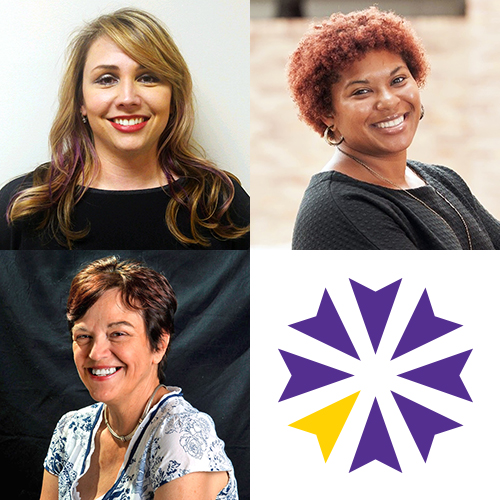
View Details / Enroll
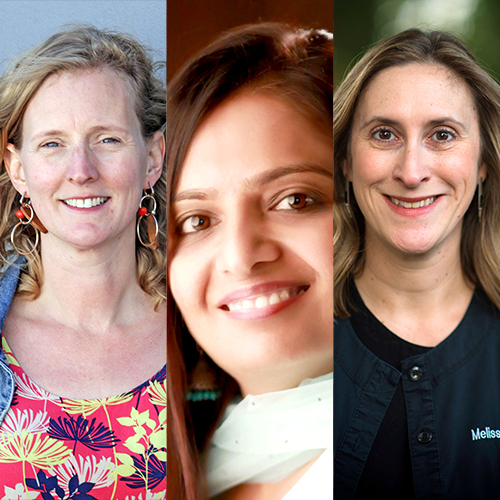

Melissa Cole is a board-certified lactation consultant, neonatal oral-motor assessment professional and clinical herbalist in private practice. Melissa is passionate about providing comprehensive, holistic lactation support and improving the level of clinical lactation skills for health professional. She enjoys teaching, researching and writing about wellness and lactation-related topics. Her bachelor’s degree is in maternal/child health and lactation and her master’s degree is in therapeutic herbalism. Before pursuing her current path, Melissa’s background was in education and cultural arts, which has served her well in her work as a lactation consultant and healthcare educator. She loves living, working and playing in the beautiful Pacific Northwest with her 3 children.
Anna Le Grange is an International Board Certified Lactation Consultant, Registered Paediatric Nurse, Mindfulness teacher and Author. She has worked with new families for over 20 years in a variety of clinical roles. Anna brings her passion for psychology, neuroscience and mindfulness into her lactation support work and facilitates other professionals to incorporate emotional well-being tools into their own lactation practice.
Mother to 3 children, Anna breastfed her 3rd child following breast reduction surgery and experienced first-hand, the emotional challenges that so often relate to infant feeding complexities. She used her personal experiences alongside mindfulness and lactation knowledge, to create a toolbox of techniques for breastfeeding families, which she includes in her courses and book, The Mindful Breastfeeding Book. Anna believes whole-heartedly in prioritising calm and connection within our breastfeeding support practices, both for our clients and ourselves.
Anna is currently studying for a MSc in Positive Psychology at Buckingham New University and has spoken at various events including the ILactation conference and Womanfest.
Dipti Shah is a Mother Support Group Leader - Lactation Counsellor since 1998 & Lactation Consultant since 2010. She was trained by BPNI Maharashtra Faculty & has been providing Lactation Counselling services in multiple Institutional Hospitals & small maternity homes in Mumbai for over 2 decades. She has wide experience in community advocacy & Individual Counselling in indoor, OPD, home and online settings. She is senior trainer for BPNI Maharashtra & participated as faculty in over 100 workshops in Seven States of India & for 5 batches of ’96 hrs of Lactation Specific Education’ for IBLCE preparation (2010-2021). She mentored many Lactation counsellors and consultants. She is a BFHI Assessor since 2001 & has trained two groups of ‘Traditional Massage Women’ in basics of infant feeding and childcare. She has extensively contributed to multiple training modules, presentations & videos for BPNI Maharashtra & Maharashtra Government & UNICEF. She is also office coordinator of BPNI Maharashtra since 2004. She participated in Expanded Global Breastfeeding Partners Meeting (GBPM) of WABA at Penang, Malaysia in 2010. She was felicitated with ‘Dr N.B. Kumta Award’ in 2016. She exclusively breastfed her son for 6 months and continued well into 2nd year.
The care of breast/chestfeeding dyads is not always straightforward. With the potential for postpartum medical concerns in parent or baby, the potential for a parent needing mental health support and the possibility of a baby needing a type of feeding support that falls outside of the scope of practice or experience of a lactation professional, it’s important for care provides to know when to refer, how to navigate barriers to referral and how to work collaboratively with other care providers once a referral has been made. Our panel of expert speakers will be sharing their clinical knowledge and experience to address these issues and help lactation professionals with the practicalities of making referrals and working collaboratively to ensure optimal outcomes for their clients.
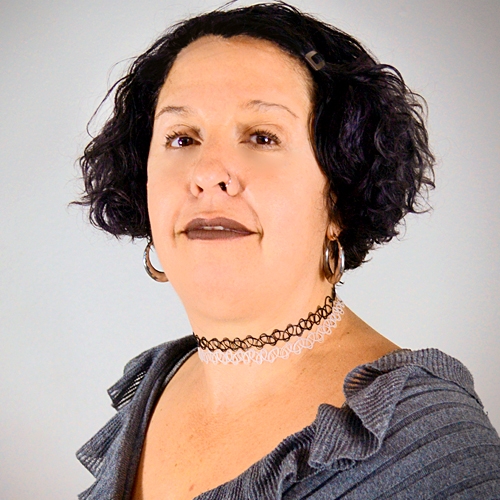
Equity and Safer Infant Feeding in Times of Disaster and Civil Unrest

Lourdes Santaballa is a community activist and organizer, with a background in domestic violence, affordable housing, and economic equity advocacy. A La Leche League leader from 2009-2017 and IBCLC since 2011, she was the founder of the lactation program at sePARE, providing coordinated services to low income families, leading it to receive the ILCA Care Award and received the Wilson-Clay Hoover Award for Research. Lourdes received the notorious Drs. Ruth Lawrence and Audrey Naylor Legacy Scholarship in 2016 by the United States Breastfeeding Committee, the Miriam H. Labbok Award for Excellence at the Breastfeeding and Feminism conference in 2018 and is currently completing her master’s degree in clinical nutrition. In October 2017, following Hurricanes Irma and Maria, Lourdes founded Alimentación Segura Infantil or ASI, an Infant and Young Child feeding program focused on increasing breastfeeding, leadership and training in marginalized communities in Puerto Rico.
In times of civil instability and changing global climate, we risk natural disasters, infrastructure failure, terrorist situation, police brutality, mass migration, chemical accident, war or other type of emergencies. Infants and young children under the age of 2 are the most vulnerable due to their dependence on adults for survival and their delicate physiology. We know that lactation in emergencies saves lives, yet the unrest that occurs in the days immediately after the disaster may contribute to premature weaning. At the same time, many babies are not breast or chestfed at all or only partially. This session will explore the methods to preserve breastfeeding, decrease the use of formula and other human milk substitutes, promote relactation, and teach appropriate complementary feeding in a disaster appropriate, low tech and resource limited environment. We will also discuss the colonial and patriarchal of humanitarian relief and how to make equity our focal point.

View Details / Enroll
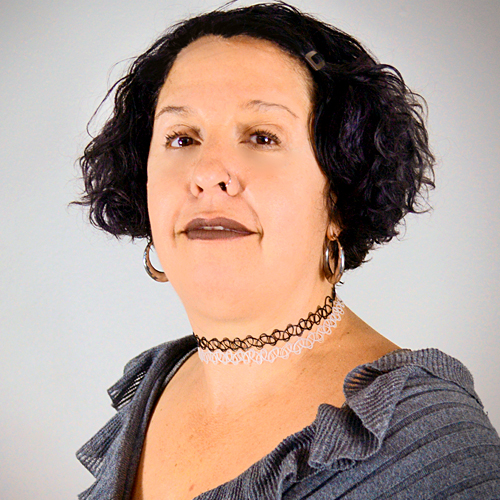
View Details / Enroll
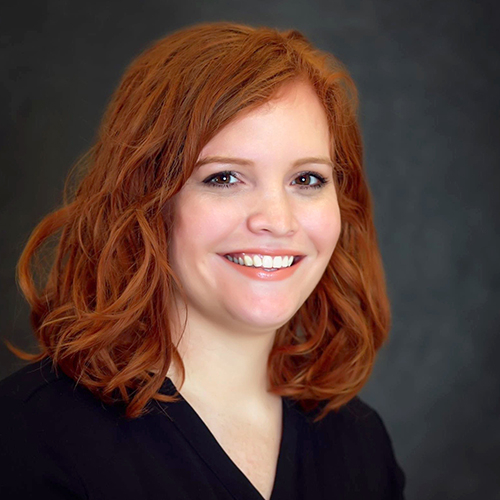

Kelsie Barta is an International Board Certified Lactation Consultant (IBCLC) who lives in Richmond, Texas with her spouse and two young children. She is currently pursuing a Doctorate of Philosophy in Nursing Science with Texas Woman’s University, with a primary research interest in lactation. She occupies her time with various part-time endeavors, including working as a Family Nurse Practitioner, a Clinical Nursing Instructor for nursing students in their maternal child health and pediatric clinical experiences, lactation consulting, and volunteer work with an emerging nonprofit maternal health organization in Houston, Texas. Her experiences with lactation are dynamic. Professionally, she has worked with breastfeeding/chestfeeding dyads in a postpartum hospital unit, through outpatient clinic visits, and via antenatal education. Her personal experiences include breastfeeding her children, serving as a resource to friends and family, and generally being “plugged in” to how lactation and lactation consulting may be perceived among people her age. She is passionate about empowering parents to reach their infant feeding goals, equitable access to lactation care, and health policy.
Health professionals that interact with birthing parents and their infants in the first few days of life are uniquely positioned to impact lactation. In the context of the maternal guilt, shame, and stigmatization that can accompany infant feeding decisions, lactation professionals have an obligation to provide ethical care. This presentation will review the ethical guidelines of autonomy, nonmaleficence, and justice in the context of lactation support in the early postpartum period. Participants will be presented with strategies to mitigate harm, promote autonomous decision-making, and increase equity in lactation care. Based on these ethical principles, the extent of lactation promotion and language considerations will be discussed, as well as an in-depth look at the health professional’s ethical responsibilities when encountering cessation of exclusive human milk feedings.

Examining the Roots of the Formula Crisis and Insights on Ending Exploitative Marketing from the 2023 Lancet Breastfeeding Series

Cecília Tomori is Associate Professor and Director of Global Public Health and Community Health at the Johns Hopkins School of Nursing with a joint appointment at the Johns Hopkins Bloomberg School of Public Health. She is a Hungarian American anthropologist and public health scholar whose work investigates the structural and sociocultural drivers that shape health, illness and health inequities. Dr. Tomori is an internationally recognized expert on breastfeeding, infant sleep and maternal child health.
During the COVID-19 pandemic, she has supported numerous organizations focused on maternal child health and health equity and advocated for equitable pandemic policies. She has authored three books on breastfeeding and reproduction, and published numerous articles on a range of public health and anthropological topics.
Topic: Resolving Cultural Conflicts in Nighttime Breastfeeding and Infant Sleep - [View Abstract]
This presentation will address the North American formula crisis that was triggered by investigations into the deaths and illness of several infants from contaminated commercial milk formula (CMF), leading to an extended shut down of a major plant and acute shortages of CMF. Infant feeding decisions are shaped by powerful, inequitable systems and this presentation will identify the corporate practices entailed in perpetuating harmful practices in this crisis and provide policy solutions for how to establish a more equitable and just system of infant feeding in a time of multiple, accelerating infant feeding emergencies due to climate change.
The second part of this 2 hour workshop will address key lessons from the 2023 Lancet Breastfeeding Series. Specifically, the presentation will review Series insights into the extensive influence of the commercial milk formula industry and outline the elements of the corporate playbook employed to increase sales and undermine breastfeeding. Additionally, the presentation will highlight sources from the extensive evidence brought together in the Series to demonstrate industry tactics ranging from scientific claims that lack evidential basis to the misconstruing of infant behavior, influencing health professionals and national as well as global regulations and policies. We will also discuss recommendations of the Lancet Breastfeeding Series workgroup to end exploitative marketing and improve support at all levels for breastfeeding and engage in discussion around opportunities to implement recommendations. This will be an interactive session with ample opportunities for questions and discussion.

View Details / Enroll
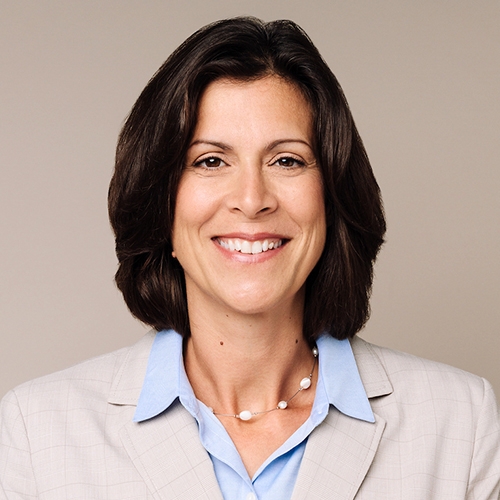
Expected Weight Changes After Birth for Full-Term, Breastfed Newborns

Dr. Diane DiTomasso achieved a Diploma in Nursing from Newport Hospital School of Nursing; a Bachelor of Science in Nursing, a Master of Science in Nursing Education, and a PhD from the University of Rhode Island. She is an Associate Professor at the University of Rhode Island College of Nursing.
Her research focus is human lactation and infant weight. She has multiple publications in journals such as Journal of Gynecologic & Neonatal Nursing (JOGNN), Journal of Human Lactation, Journal of Perinatal and Neonatal Nursing, and Nursing for Women’s Health and has presented her work nationally and internationally.
Dr. DiTomasso has received various honors and awards with the most recent being the 2020 Suzanne Feetham Nurse Scientist Family Research Award by the Eastern Nursing Research Society (ENRS) and the 2020 Best of JOGNN Award as first author of the article, “Systematic Review of Expected Weight Changes After Birth for Full-Term, Breastfed Newborn. She has served as Principal Investigator for a variety of neonatal research studies. Dr. DiTomasso is a member of AWHONN, the International Lactation Consultant Association, the Eastern Nursing Research Society, and Sigma Theta Tau International. She currently serves as a Member on the AWHONN Research Advisory Panel.
This presentation will summarize the findings of recent studies on neonatal weight changes that occur in the early weeks of life among full-term, breastfed newborns.
Data Sources: Using the keywords breastfeeding, newborn, infant, weight, weight loss, and growth, we searched PubMed, Cumulative Index of Nursing and Allied Health Literature, Cochrane Library, and MEDLINE for primary studies and secondary analyses. We also reviewed the reference lists of retrieved articles. Study Selection: Quantitative studies published in the English language from 2015 through 2019 that focused on newborn weight changes. From a total of 827 records initially screened, we included 11 studies in this analysis.
Data Extraction: Two authors independently reviewed the selected articles with the use of the Johns Hopkins Nursing Evidence-Based Practice Synthesis and Recommendations Tool. To determine evidence levels and quality ratings, we evaluated the consistency and generalizability of study results, sample sizes, study designs, adequacy of controls, and definitive nature of the conclusions. This presentation will discuss the finding of this study related to expected weight changes after birth for full-term, breastfed newborns.

View Details / Enroll
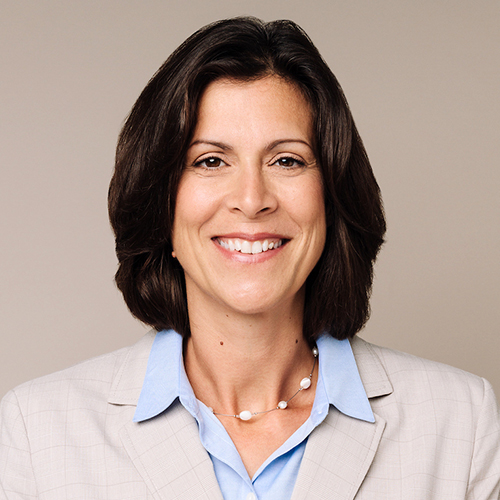
View Details / Enroll
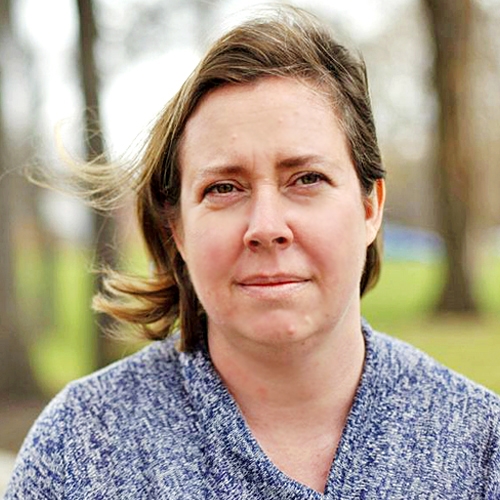
Facilitated Discussion on IYCF-E and the Role of the Lactation Professional

Michelle Pensa Branco MPH IBCLC is a lactation consultant and public health advocate. In addition to her clinical practice, which has included in-hospital, outpatient and private practice settings, she advocates for improved maternal-child health practices at the local, national and global level. She has a particular interest in the impact of trauma to breastfeeding families, models of peer support to improve breastfeeding outcomes and the application of health communication principles to the promotion and protection of breastfeeding. Michelle serves as the Director of Peer Support Programs and provides clinical lactation expertise for Nurture Project International, the only international NGO focused exclusively on infant feeding in emergencies. With Jodine Chase, she co-founded a Canadian non-profit organization, SafelyFed Canada. She is also an active member of the Ontario Public Health Association’s Breastfeeding Promotion Working Group. Michelle has previously served as the Vice-Chair of La Leche League Canada, the Communications Director for the Canadian Lactation Consultants Association as well as the Toronto Coordinator of INFACT Canada. When she is not travelling for work, Michelle stays close to home, living with her family just outside Toronto, Ontario, Canada.
Topic: Keeping the Fox Out of the Chicken Coop: Safeguarding Your Reputation Against Baby Feeding Industry Influence - [View Abstract]
Topic: Playing Well with Others: Collaborating in High Conflict/Low Trust Settings - [View Abstract]
Topic: Watching Our Words: Is Risk-Based Language Always the Right Choice? - [View Abstract]
In emergencies, breastfeeding saves lives - and yet, regardless of the location or type of disaster, breastfeeding and complementary feeding practices are eroded during an emergency. Infant and young child feeding in emergencies (IYCF-E) requires a multi-sectoral approach to meet the needs of both breastfed and non-breastfed children. Where do the skills of breastfeeding counsellors, educators and IBCLCs fit into the IYCF-E response? What competencies do IBCLCs need to provide clinical care in a humanitarian setting and how can IBCLCs obtain those (if they don’t already have them)? Bring your thoughts, experiences and questions and join us for a facilitated discussion about the role of skilled breastfeeding support in protecting infants and young children in emergencies.

View Details / Enroll
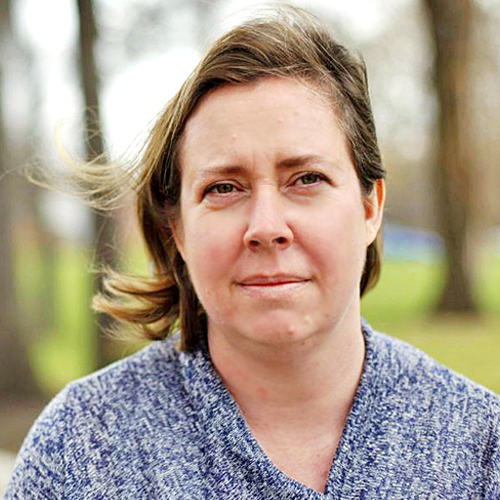
View Details / Enroll
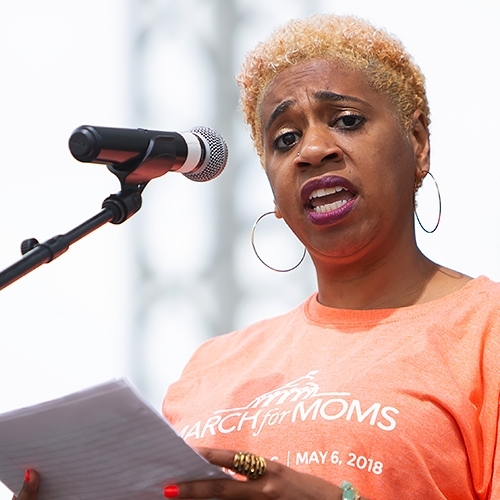

Chauntel Norris is a native of Birmingham, AL. She attended the University of Alabama at Birmingham where she earned her B.A. in African American Studies & her B.S. in Psychology.
Chauntel is a DONA trained Birth & Post-Partum Doula, a Lamaze trained Childbirth Educator and a Certified Lactation Counselor.
She is the Co-founder of Baobab Birth Collective and currently serves as the Mother's Milk Initiative Coordinator for the Alabama Prison Birth Project.
Chauntel is the mother of two brilliant children Amaiya and Ozell.
During this presentation the barriers of incarceration as it relates to lactating parents will be discussed. An overview of Program development, Partnerships development and working with corrections will also be considered. I will also show how our Alabama initiative combats those barriers and allows incarcerated women to be able to provide their milk to their infants.

View Details / Enroll
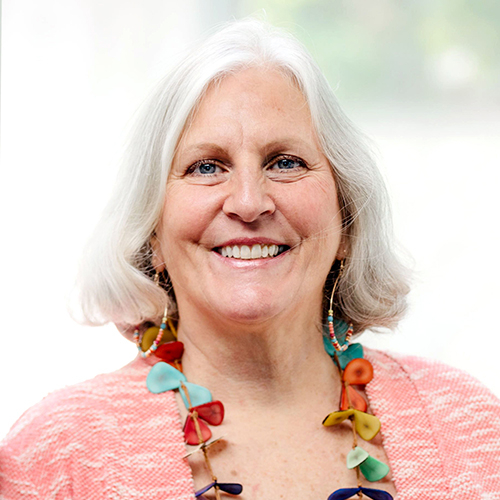
Finger Feeding: What Do We Know? What Should We Know?

Dr. Hazelbaker has been a therapist in private practice for over 30 years. She specializes in cross-disciplinary treatment and to that end has taken training in several modalities to best assist her clients. She is a certified Craniosacral Therapist, a Lymph Drainage Therapy practitioner, a Tummy Time™ Trainer, a Haller Method practitioner, A Pre and Perinatal Psychology Educator, a Lactation Therapist Diplomate, an International Board Certified Lactation Consultant and a fellow of the International Lactation Consultant Association.
She earned her Master’s Degree from Pacific Oaks College (Human Development specializing in Human Lactation) and her doctorate from The Union Institute and University (Psychology, specializing in Energetic and Transformational healing.)
People recognize her as an expert on infant sucking issues caused by various structural problems like torticollis, plagiocephaly, brachycephaly and tissue shock-trauma. She invented the Hazelbaker™ FingerFeeder and the Infant Breastfeeding CranioSacral Protocol™ to assist in the resolution of this type of infant sucking dysfunction.
Topic: Cranial Nerves: A Critical Component of the Process of Breastfeeding - [View Abstract]
Topic: Creating Flow: Using Lymphatic Drainage Therapy for Breastfeeding Issues - [View Abstract]
Topic: Finger Feeding: What Do We Know? What Should We Know? - [View Abstract]
Topic: Gamechangers: New studies that will change the way we think about tongue-tie - [View Abstract]
Topic: Infant Trauma: Impact on Breastfeeding - [View Abstract]
Topic: The Faux Tie: When is a "Tongue-tie" NOT a Tongue-tie? - [View Abstract]
Topic: The Impact of Bodywork on Infant Breastfeeding - [View Abstract]
Topic: What Does Torticollis Have to do with Breastfeeding? - [View Abstract]
Although an alternative feeding method, such as bottle, cup or finger feeding, represents a less than ideal way to feed infants, at times introducing one of these methods may ultimately save the breastfeeding relationship. In this session, Dr. Hazelbaker presents the research on and the theory of finger feeding. She then proposes areas for further research. She includes a sub-lecture on the physiology of finger feeding and compares finger feeding against bottle and cup from the physiological perspective. Participants come away with a new understanding of finger feeding, enabling them to make sound clinical decisions regarding a therapeutic choice when a baby must be fed away from the breast.
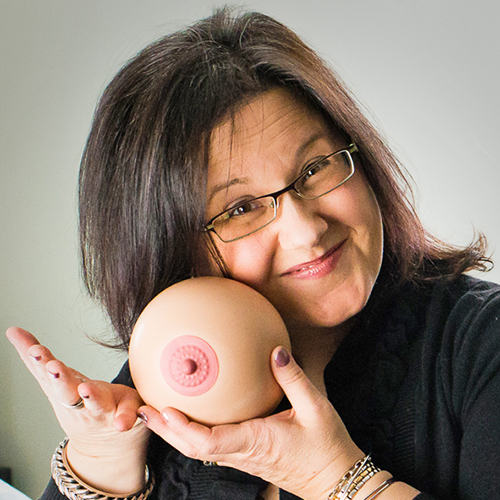
Fitting Flanges for Pumping: Rethinking Sizes and Materials

Jeanette Mesite Frem, MHS, IBCLC, RLC, CCE is an experienced childbirth educator, IBCLC-lactation consultant and retired birth doula. She started her career working with families while serving as a Peace Corps Volunteer in Côte d'Ivoire, West Africa in the early 90s. She loved that work so much she went on to receive a public health masters degree from Johns Hopkins School of Public Health, focusing her studies on nutrition for maternal and child health. Her two children were breastfed for more than 2 years each and Jeanette has experience pumping at work for both children and has supported more than a thousand families with feeding and pumping over the last 20 years.
Jeanette provides prenatal childbirth and breastfeeding classes at her office in Northborough, Massachusetts, as well as providing virtual and office feeding consultations. She also enjoys leading workshops for perinatal health professionals and mentoring those who work with families. If you have questions, feel free to email [email protected].
Topic: Pumping for Hospitalized Babies: 12 Keys to Supporting Families - [View Abstract]
As lactation professionals, our overall goal is to help more babies get more human milk. Our work often includes supporting families with pumping. For many years, we have been told to "size up" for pump flange/breast shield size but many parents and lactation professionals are now finding that sizing down is much more effective for comfort, yield and pumping efficiency. But how small? Do silicone flanges work just as well as hard plastic? Does the shape of the flange influence milk removal and comfort? This session will show participants many different flanges sizes, several different types of flanges and video snippets of real parents pumping with some of them. The session will focus on how lactation professionals can actually do a flange fitting WITH a client, both in-person and virtually. Providing effective flange fitting services as a lactation professional can increase pumping comfort and significantly increase milk yield and extend the duration of lactation for many families.





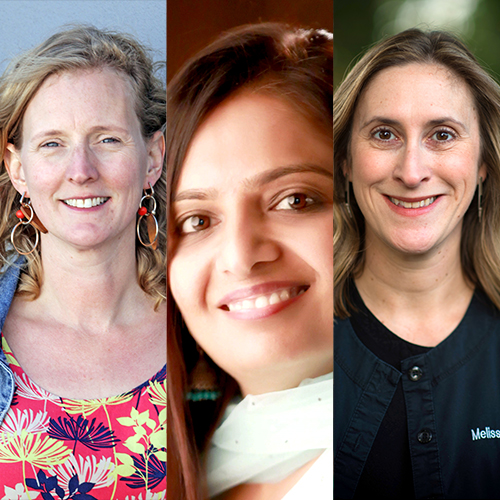

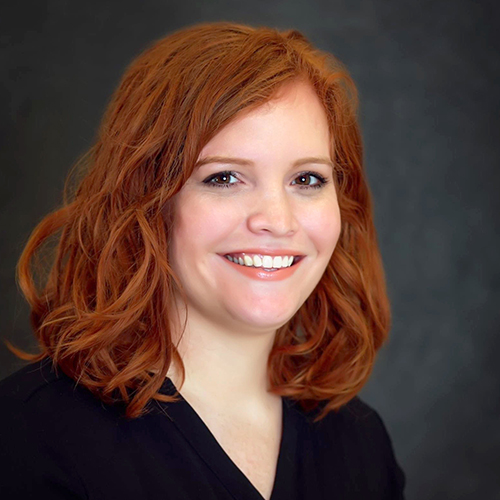

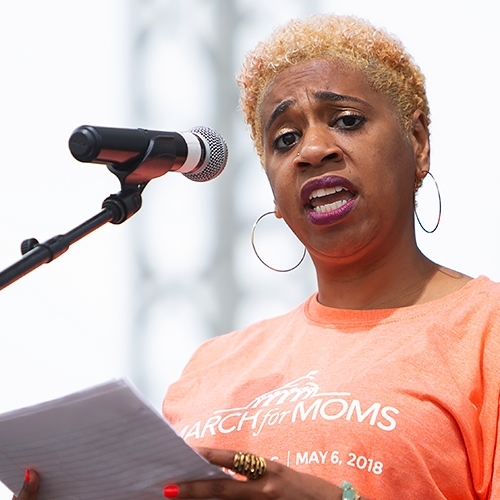
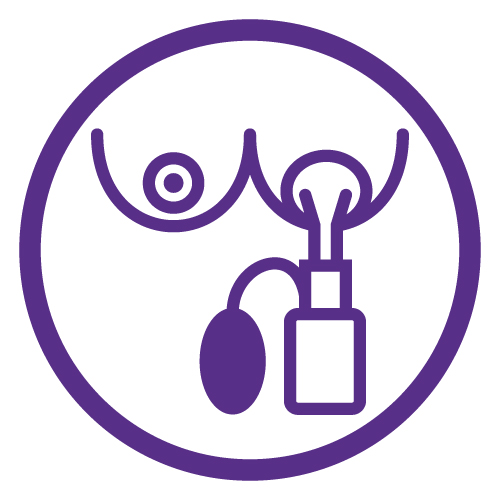
.jpg)
